Actually International?
The Flag Pavilion at TKS an international school in Saudi Arabia
On January 30th, as I was scrolling through Instagram, I came across a post from HHSToday, the Hillsborough High School Newspaper’s Instagram page. It detailed their annual International Day celebrations, where various IB classes put on performances from different countries around the world. The students were piled into the gym to watch their peers perform celebrations of cultures from Mexico to Palestine. Along with many other events in high school, it was a competition. Immediately, I was flooded with envy; as someone drawn to the IB program primarily due to its international aspect, I have felt, for some time, that St. Petersburg High School does little to emphasize the international aspect of the program.
According to the IBO website, the mission statement of “the IB [is to] develop inquiring, knowledgeable and caring young people who help to create a better and more peaceful world through education that builds intercultural understanding and respect.” While our school does focus on an international curriculum, it often fails to build intercultural understanding in the school experience. Chelsea Brown, an IB junior, said she “wants international days where we have presentations on different cultures and cultural experiences.” She believes that “a flag hallway” would be something that could acknowledge the unique international aspect of our school. Students who participate in the IB program joined not as an alternative to AP styles classes but to join a global community that boasted diversity in perspectives and cultures.
Many teachers agree with the overall sentiment of the students. Mrs.Vinciguerra, an IB Biology teacher, believes “the program has room to grow” regarding how the program approaches its internationality. While many of the books we read are translated texts such as Persepolis or Chronicles of a Death Foretold, and history is taught from multiple perspectives, the curriculum remains relatively similar to that of our peers in the traditional American High School curriculum. Arthur Oganisyan, a junior in the traditional program, said that “[the programs] are different yet alike” and compared them to “creek[s]” that “both flowed into the river of life.”
Mahi Shah, an IB junior, believes that the cultural appreciation of our school program is “surface level.” While cultural celebrations are often posted on Instagram, their significance is usually not talked about in school. Lily Cuddy, an IB sophomore and Secretary of Model UN says, “the program should have more international celebrations [because] the only international thing we do is a foreign language.”
So what is the solution? Who does the responsibility land on? Teachers? Students? Administrators? Or Parents? In order to progress forward and live up to the name of the International Baccalaureate Program, everyone should come together to support the change.


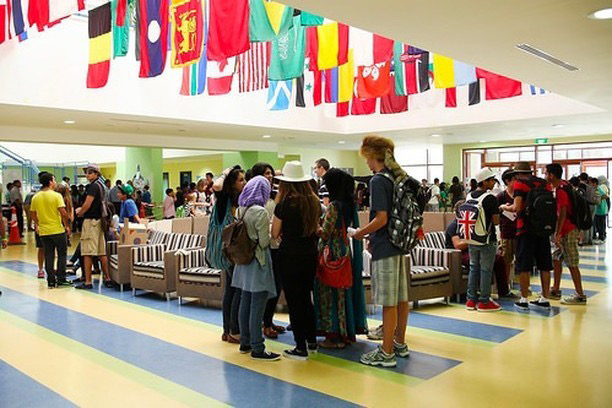


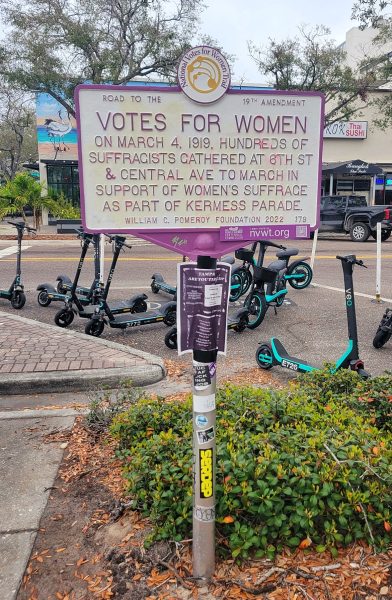

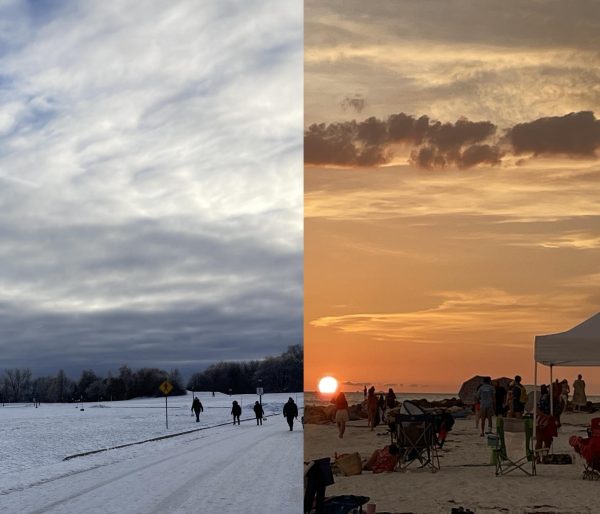
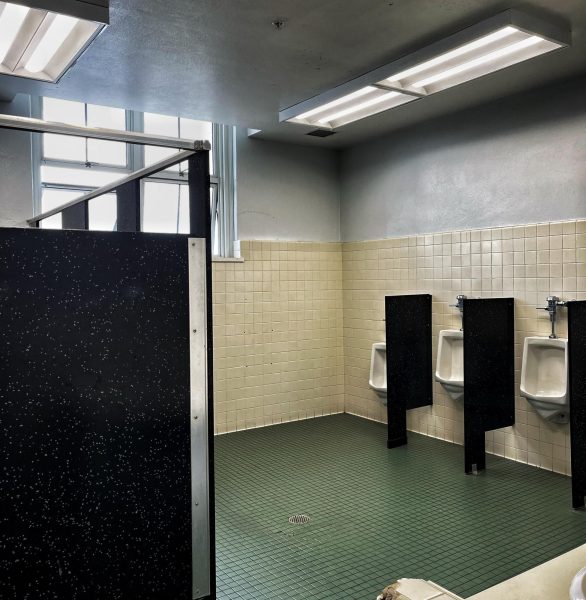
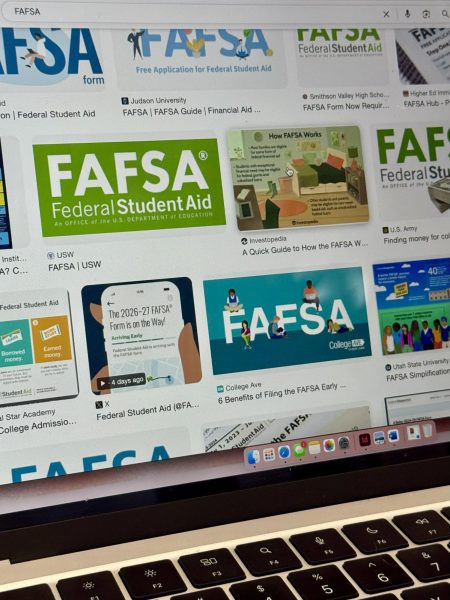
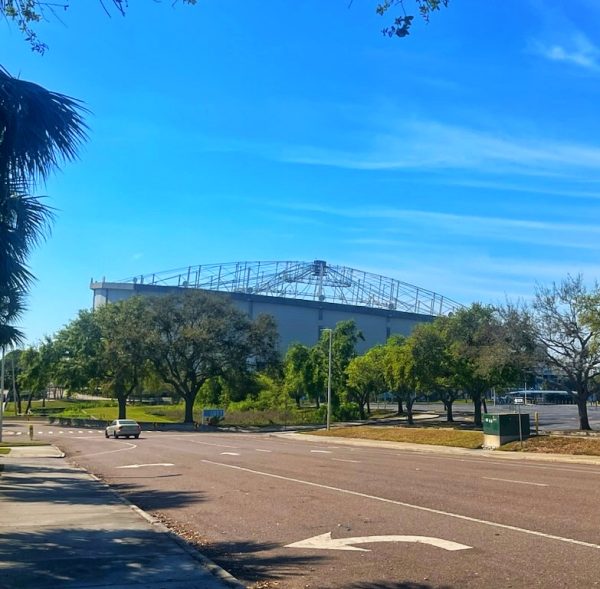
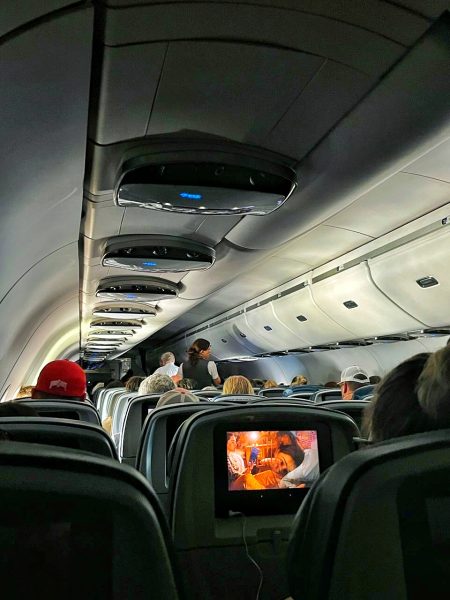
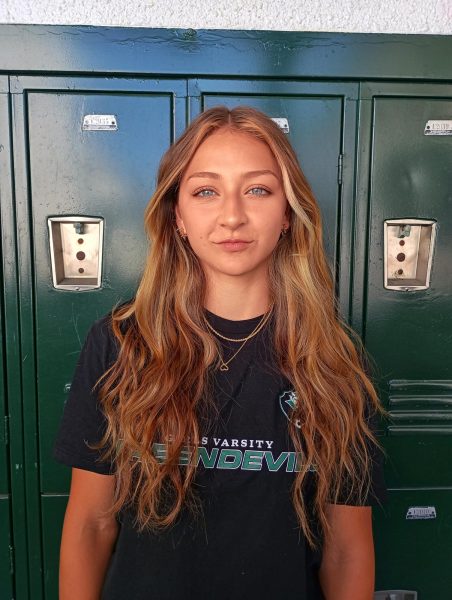
Travis • Feb 16, 2023 at 9:12 am
While I think this touches on a serious and relevant issue of how the program represents itself, I do not feel like benefits of key parts of the IB were brought up. In my opinion, the international authors, multiple teaching perspectives, and even the basics in ToK, all flow into the student to make decisions with, not just out into the river of life. Students take away what they want to from the IB, just like any school system. The base which IB gives for students to launch themselves from is totally different from a “normal” high school system, but because the program shares the same buildings and traditions with the rest of the school I can see how differences can be viewed as few (I felt this way before, too). I believe the most impactful tool the IB rewards students with who truly want to “go” international is the IB Diploma. Typically 1 or 2 students a year from the SPHS IB Program go to international universities full time. It’s a very personal decision, but I don’t believe the program at SPHS is equipped to help students make that decision. You HAVE to do your own research before you start the IB, because different countries have different IB regulations. I wanted to go to school in Southern Germany, but the state I applied in required HL Math and HL Biology, of which I had done neither. Had I done the proper research beforehand, I could have adapted my HL/SL choices. Furthermore, had I looked into other countries that accepted my HL/SL combos or accepted my Diploma as a Swiss graduating degree, I would have known a lot sooner Austria accepts it without issue. My point is the IB diploma can actually take you around the world if you let it, but the program we have in the US (or at a minimum at SPHS) is simply not used to kids choosing that route. What I think this article does well is start the discussion of how we can make students more aware of the pitfalls within IB, what falls through the gaps of the IB’s handlings and our own assumptions. Personally, I believe the IB can be international as it is with one’s own effort, but if you believe it ought to be set up that way from the start, more power to you. I love the idea of an international expo/competition, but I’d suggest expanding it to the entire school. The international community at SPHS doesn’t stop at IB’s doorstep. All in all, I thought the article was a needed piece of perspective pie, but that it left out that the basis isn’t about hanging flags and churning kids out with nothing special gained, rather that the IB education is unique despite SPHS’ environment and the physical tool it equips graduates with can take you anywhere you want in the world if you look in the right places, something I promise you a high school diploma does not do as easily.
adviser • Feb 16, 2023 at 3:27 pm
Hi Travis, I really appreciated your perspective on this and agree with many of your points. Especially the point about having to do your own research surrounding going abroad for university. I believe the IB program is very important for cultivating those types of opportunities; my own experience at a different IB school gave me the perspective of what the IB program can be when the international aspect of the program is at the forefront. Many of the solutions are not my own brainchild; rather, those of those I interviewed for the article. Personally, I believe the more superficial elements, such as flags, can be a reminder of who were are and what we should strive for!
– Olivia